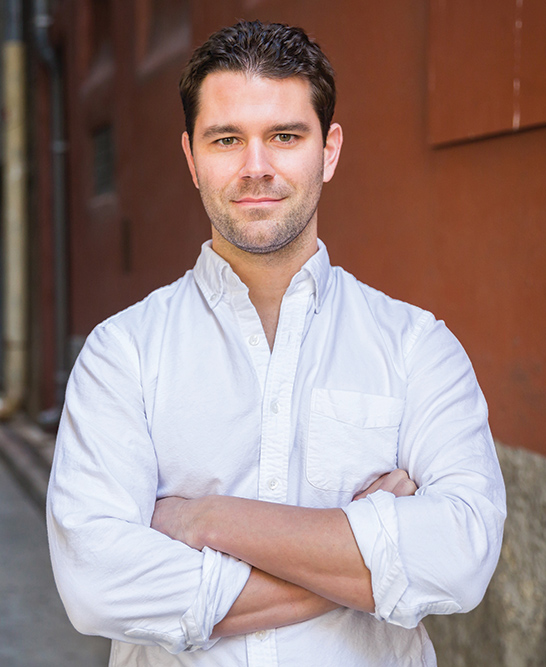In the midst of this pandemic-induced economic recession, a new president was inaugurated and the balance of power in the House of Representatives and the Senate shifted. This provokes an additional degree of uncertainty.
Will the new administration authorize additional economic stimuli? When will the eviction moratorium end? Will the economy fully recover once the country completely reopens? Will former President Trump’s tax cuts remain in place? Will President Biden raise taxes?
These questions and many more are top of mind for multifamily investors. What can you do to protect your investments?
Ultimately, your decisions as to when and how to invest should not be based on who is president, who controls the House or Senate, or which part of the market cycle we are in. Investors have made money investing in multifamily under both a Democrat- and a Republican-led government, as well as during economic expansions and recessions. If you want to set yourself up for success in 2021 and beyond, here are three simple principles you must follow.
1. Buy for Cash Flow
There are two major pathways to make money when investing in multifamily real estate: appreciation and cash flow.
Market-driven appreciation is when the value of a multifamily investment “naturally” increases. This is commonly motivated by compressing capitalization rates or increasing rental rates due to rising demand. For example, according to Apartment List’s National Rent Report, rents were up approximately three percent nationally in 2018 and ~2.1 percent in 2019. As long as you invested in a market that experienced rent growth equal to or greater than the national average, your investment appreciated in value.
However, due to the COVID-19 pandemic, national rental rates decreased by 1.2 percent in 2020. In many markets, rental rates fell more than 10 percent, with San Francisco experiencing a 27 percent reduction in rents. Therefore, if you made a multifamily property investment in early 2020 and based your analysis on the assumption that rents would continue to grow “naturally,” your investment has almost certainly decreased in value.
In other words, buying for appreciation might be great during an expansion, but because no one can consistently predict if the ball will land on red or black, buying for appreciation is comparable to gambling.
The ideal approach is to buy for cash flow. Cash flow is the profit generated by a multifamily investment after all expenses are paid. Simply put, buying for cash flow means that the investment will generate a monthly profit from day one. The success of the deal is less based on market-driven appreciation and more on how the investment is currently performing.
When you buy based on cash flow, fluctuations in rental rates will still impact the value of your investment. However, since the property is generating a profit from the onset, you have a built-in buffer. At the minimum, you can cover your expenses and not be forced to sell.
2. Secure Debt for Double the Length of your Business Plan
Because the value of an investment is always subject to fluctuations in the market, you must also secure long-term debt.
Imagine your business plan is to perform upgrades on 100 percent of your units over a 24-month period with a goal of increased revenue. You secure a three-year bridge loan with the intent to refinance into a conventional mortgage once the renovations are completed. If everything goes according to plan, that’s great. Now, imagine a global pandemic breaks out during year two and you are unable to achieve your desired rent increase? Once the bridge loan’s term ends you will likely need to bring cash to the table for closing costs. What’s worse is that you may not be able to secure a refinance at all. Now, you’re facing foreclosure.
To avoid these scenarios, it is recommended to always secure debt for a term that is at least twice the length of the business plan. In other words, if you expect renovations to take 24-months, secure debt with a loan term that is at least four years long. This, like buying for cash flow, will provide an extra safety net.
3. Maintain Adequate Cash Reserves
The final principle is to create a sufficient reserve budget. Currently, conventional lenders are requiring higher reserve budgets. On some loan products, this could mean upwards of 18 months of principal and interest. Keep in mind, requirements of this amount are in response to COVID-19.
Even when lenders are not requiring large cash reserves, you must voluntarily elect to place funds in an account as a safeguard. This will protect you against fluctuations in the market and cover other unexpected events over the course of the business plan’s execution. This includes an upfront fund at closing and a portion of the revenue each month.
A cash reserve is the final safeguard in the event of a major recession and negative cash flow. It will allow you to cover the debt service and expenses and avoid a situation where you’ll be forced to sell.
This System Works
I have faithfully adhered to these tenets since I began raising capital to buy multifamily real estate in the form of apartment communities in 2015. By practicing these principles, my company was able to add just under $300M in assets in 2020, despite the pandemic. This past year has increased our portfolio to over $1B in assets under our management.
Regardless of how long the pandemic lasts or the legislation passed by the government, if you stick to these three principles—buy for cash flow, secure long-term debt, and set aside adequate cash reserves, your portfolio will not only survive, but thrive throughout your real estate investing career.
























0 Comments